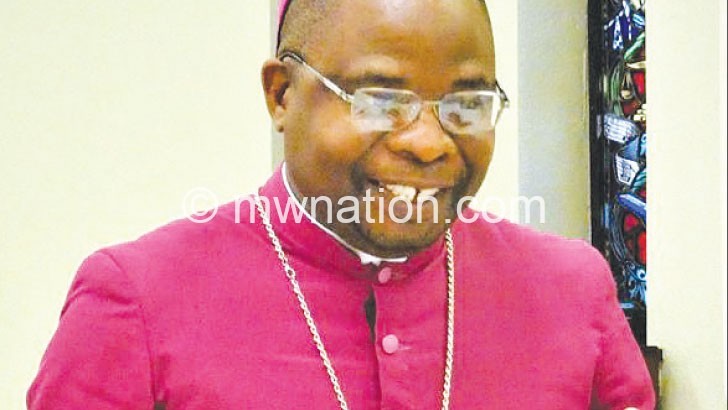Translation in churches: is it necessary?
 Translation in churches: is it necessary? Nowadays, preaching with a translator has become one of the most common ways of sharing the gospel in many churches. Whether this has come with the changing times or because of the inclusion of foreign nationals in our churches, many however argue that it makes sermons unnecessarily long. In this article, PAIDA MPASO finds out from church leaders why they feel translation is important.
Translation in churches: is it necessary? Nowadays, preaching with a translator has become one of the most common ways of sharing the gospel in many churches. Whether this has come with the changing times or because of the inclusion of foreign nationals in our churches, many however argue that it makes sermons unnecessarily long. In this article, PAIDA MPASO finds out from church leaders why they feel translation is important.
Pastor: For God so loved the world, that He gave His only begotten son
Translator: Pakuti Mulungu anakonda dziko lapansi, kotelo kuti;
Pastor: That whosoever believes in him should not perish but have everlasting life
Translator: Anapeleka mwana wake yesu, kuti yense okhulupilika asatayike koma akhale nawo moyo wosatha
This is usually the order of day in most churches nowadays. Translating is one of the most common trends that have hit many churches, particularly Pentecostal churches. Whether it is necessary, or not, translating a message has its advantages.
Translating sermons will make the message available to many people, especially if there are some members of that grouping who do not understand the language being used to preach. This in the end will further help the members to use the message to their benefit as problems of communication are automatically eliminated.
But does translating Bible messages in a gathering where all people communicate in one language make sense? What about the issue of accuracy? In many religious gatherings, the issue of accuracy usually pops up, are the people the message is intended to getting the message in its full contextual meaning?
Chileka resident, and member of a pentecostal church, Chisomo Mayinala said, it does not make sense at all. She believes that in a church where all people are communicating on one language, it serves no purpose to translate.
“If the church has received visitors who cannot communicate in common language then we can translate, otherwise I feel it is unreasonable to translate,†she said.
Mayinala has visited other churches and many of them do not get it right.
“I believe translation is an art and it cannot be done easily by anyone, there are some people who are exceptionally well while others are not so good and they end up messing the whole sermon. That is why I feel it’s better to stick to the common language,†she added.
In many Presbyterian, protestant and catholic churches for instance, instead of having someone to translate they have two services, so that members are free to choose which ever language they prefer.
However, Fountain of Victory International Church, Pastor Medram Chirwa said he prefers having someone to translate because of issues of fluency. “There are some church ministers who have mastered the English language so much that they can mess up if they can deliver a message in Chichewa for instance, so the best is to have an interpreter,†he said.
Chirwa further said that some pastors are from other regions and might not be fluent in the local language and that is why many use the English language.
“It’s not pride or anything but we want to deliver the message the way it is in the Bible. The Chichewa language is also limited in vocabulary and that is why it is better to have a translator. We are aware that sometimes messages may get distorted in this process and that is why we are careful when selecting our interpreters,†he added.
Church of the Nazarene, Pastor Edward Mikwamba, says though their church does not translate, he does not see anything wrong with it.
“Our church has special services for people with the English and local language, and as such we do not need any interpreters,†he said.
“For those who want English services, we have services for such people, such that we do not need to have interpreters, every church member knows where to go,†he added.





